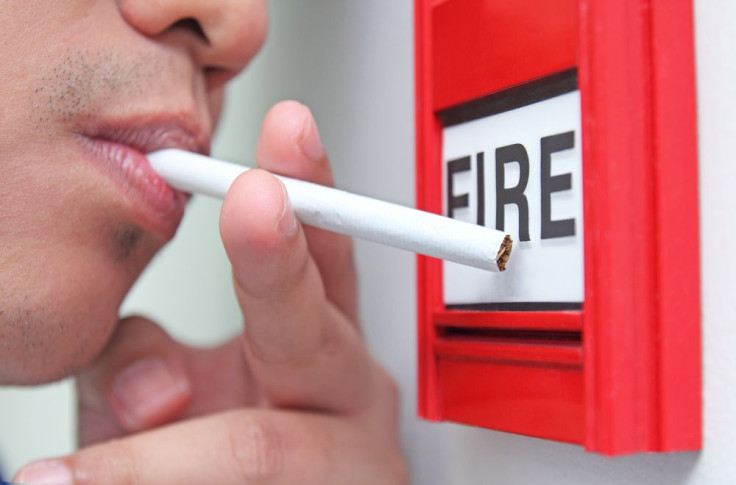'Fire-Safe' Massachusetts Cigarette Law Was Passed In 2008; Fires Caused By Cigarettes Have Decreased By 28% Since Then

On Jan. 1, 2008, the Commonwealth of Massachusetts Executive Office of Public Safety and Security Department of Fire Services enacted the Fire Safe Cigarette Law requiring the sale of “fire-safe” cigarettes. A study out of the Harvard School of Public Health (HSPH) has revealed that in the six years following the passing of this law fires caused by cigarettes have seen a dramatic reduction across the state.
"This study is the first rigorous population-based study to evaluate the effectiveness of the fire-safe cigarette standards, and shows that science-based tobacco product regulation can protect the public health," lead researcher Hillel Alpert, scientist at the Center for Global Tobacco Control at HSPH said in a statement.
Alpert and his colleagues from HSPH tracked data using the Massachusetts Fire Incident Reporting System maintained by the Massachusetts Department of Fire Services. Research included 1,629 accidental residential fires caused by cigarettes over the course of seven years. Property damage, health care costs, loss productivity, injuries, and death caused by cigarette-related fires cost Americans millions of dollars annually.
Between 2004 and 2010 the risk of an accident residential fire being caused by a cigarette decreased by 28 percent. Among the most common and highly frequent causes of cigarette-related fires were smokers falling asleep with a cigarette in their hand and cigarette embers that came in contact with furniture materials. Children, African-Americans, Native Americans, senior citizens, poor people living in low-income housing, and firefighters stand the highest risk of being involved in cigarette-related fire.
"This study confirms that the fire standard compliant (FSC) cigarette law has reduced the number of fires from cigarettes started by igniting furniture and bedding as it was designed to do," explained Massachusetts Fire Marshal Stephen Coan.
According to the United States Fire Administration, approximately 1,000 Americans are killed in home fires caused by cigarettes and other smoking devices each year. One out of four people killed in a smoking-related fire were non-smokers, including one-third who were children and one-fourth who were neighbors or friends of a smoker. In Massachusetts, 32 percent of deaths caused by a residential fires involved a cigarette in 2006.
"We now have the science to support that all tobacco companies throughout the world should voluntarily make their cigarettes less likely to ignite fires," added Gregory Connolly, professor of the practice of public health and director of the HSPH Center for Global Tobacco Control.
Source: Christiani D, Orav J, Dockery D, Connolly G, Alpert H. Effectiveness of the Cigarette Ignition Propensity Standard in Preventing Unintentional Residential Fires in Massachusetts. American Journal of Public Health. 2014.
Published by Medicaldaily.com



























